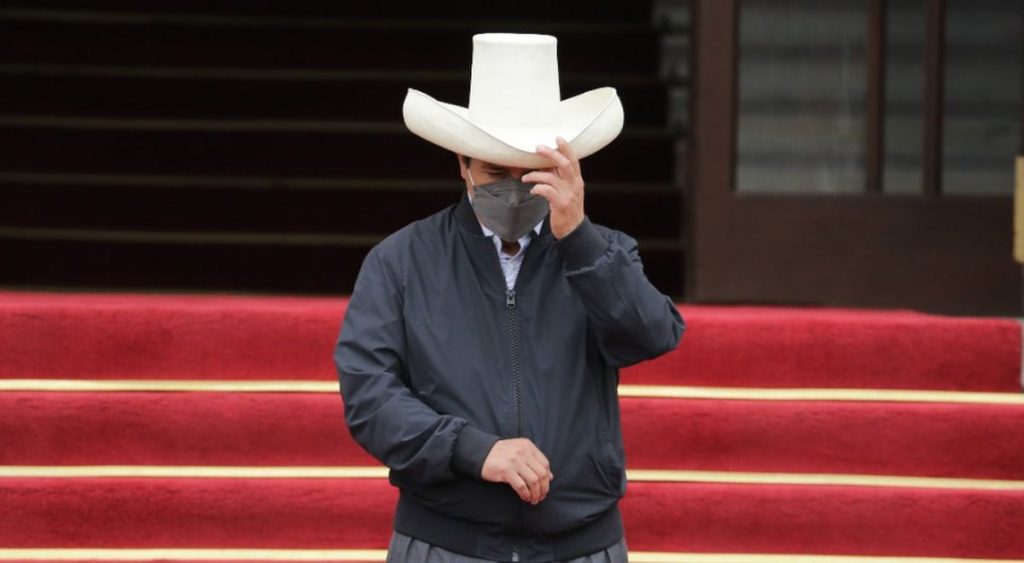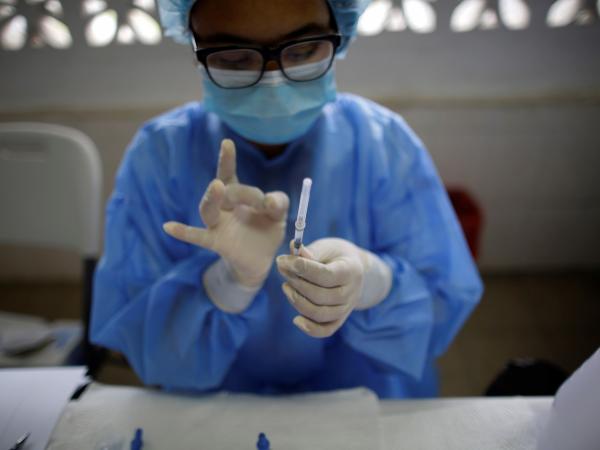Tegucigalpa, Honduras | AFP | Honduras votes this Sunday to elect a new president, with permanent calls to carry out the process in peace and without violence, in the face of fears of confrontation at the end of the day if any of the contenders reject the result.
“I wish to make a call to each and everyone, so that [el proceso] we can develop it in peace, tranquility, without fear and without violence. Enough with electoral political violence, “said the president of the National Electoral Council (CNE), Kelvin Aguirre, at the beginning of the day.
In this process, which started slowly and with at least half an hour late, more than 5 million citizens can vote until 5:00 p.m. local time (11:00 p.m. GMT). The results will begin to be known about three hours later.
The opposition candidate of the leftist Libre, Xiomara Castro, is a favorite, but the right-wing ruling National Party (PN), whose candidate is the mayor of Tegucigalpa, Nasry Asfura, has benefited from better organization and timely government campaigns to the delivery of bonds to vulnerable families.
Fears of fraud, something that the opposition already denounced in 2017, and reports of at least 31 deaths as part of the political violence in the campaign, fuel tensions.
– Vote of Castro –
One of the first to vote was Castro.
“We want it to be a civic party, in peace, in tranquility,” said the candidate as she entered her voting center in the El Espino neighborhood of Catacamas, 170 km east of Tegucigalpa.
The candidate also called on her voters not to fall for provocations.
“They are going to try to provoke the people, we understand that there is despair, especially of those who have been ruling these 12 years, but the people must come out with confidence,” he said.
– History of riots –
“If the PN wins the elections, even if it is legitimately, there will be a worrying level of violence,” analyst Raúl Pineda, a lawyer and former legislator of that formation, told AFP.
In 2017, President Juan Orlando Hernández managed to get reelected amid accusations of fraud by the opposition and international observers.
That unleashed a wave of protests and state repression that left some thirty dead.
“We are afraid of losing our job because there is relaxation (riots). We live from the daily income we earn,” says Luis Andino, who is dedicated to managing procedures for those who apply for driver’s licenses. When there are protests, they close the area where he works.
All this in a country already hit by gang action, drug trafficking and several hurricanes, and with 59% of its 10 million inhabitants living in poverty.
– Under the gaze of Washington –
“A kind of paranoia has developed, people are preparing for war,” with citizens who in recent days have supplied themselves with food and water for fear of not being able to go out later to buy, said Pineda.
But he insisted that Washington has paid a lot of attention to Honduras. He does not want a new crisis to further fuel the waves of migration that constantly go from Central America to the United States.
For this reason, he sent the head of his diplomacy for Latin America, Brian Nichols, to meet with the candidates, while international observers seek to guarantee transparent elections.
“We are deployed to guarantee the Honduran people that there will be security and peace, so that they can go and exercise their right,” said the head of the Armed Forces, Tito Livio Moreno. There are 18,000 soldiers deployed.
– “Narcogovernments” –
The PN has been in power since former president Manuel Zelaya, Castro’s husband, was overthrown in a 2009 coup backed by the military, business elites and the right wing.
But a series of corruption and drug trafficking scandals have plagued Hernández. “Tony”, his brother, is serving a life sentence in a US prison for drug trafficking. The drug traffickers that the president helped extradite to the United States accused him of being involved in that crime.
Asfura, meanwhile, was accused in 2020 of embezzling public funds, named in the Pandora Papers and linked to influence peddling in Costa Rica.
The third most preferred candidate out of 13 in the race, Yani Rosenthal (Liberal Party), spent three years in a United States jail for laundering drug money.
“Honduras is known internationally as a narco-state, but there are no narco-states, only narco-governments,” Pineda said.
– Punishment vote –
For Pineda, “the people will not vote for Xiomara, but against Juan Orlando Hernández and what he represents.” Thus, in Castro’s party they consider that she has an advantage of more than 12 percentage points.
For many voters, the main problem is the lack of work. Unemployment jumped from 5.7% in 2019 to 10.9% in 2020, largely due to the coronavirus pandemic, according to a study by the National Autonomous University.
Hondurans will also elect the 128 members of the National Congress and 20 representatives of the Central American parliament.









